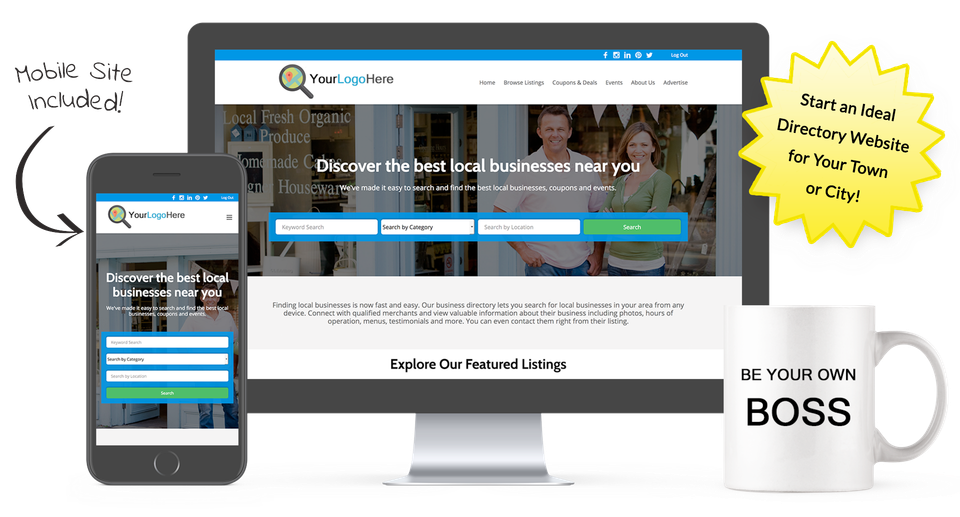5 Factors to Consider When Searching for a Business to Start
Published on January 10, 2022. Updated on February 13, 2023.Many people dream of starting their own business but very few will actually take the leap. While it might seem difficult at first, anyone is capable of running a successful business. Whether you're just beginning your search or ready to take the plunge into entrepreneurship, here are 5 factors to consider when searching for a business to start.1. Consider the Financial RequirementsAn important factor to consider when starting a business is your current financial situation and how it may evolve in the future. Can you afford to take the risk of starting a business or will that put a strain on your financial resources? Do you have enough saved up to cover your costs for the first few months or years of recurring overhead expenses?
Many businesses will require a heavy upfront investment (like a restaurant for example), while others may require less to get things rolling (such as an online business). Do you think you can afford to start the business strictly out-of-pocket, or will you need to take out financial loans to cover the initial expenses? It's important to do your research and figure out what type of business would be the best fit for your starting budget.
Very few businesses turn a profit right out of the gates. Oftentimes, it can take months or even years to start seeing a return on your investment. But it takes money to make money, so be prepared to invest in your business to see it grow, especially in the early stages.
Ideally, you want to have enough money saved to fund your business venture for the first year. Don’t expect to become an overnight success. Instead, stay committed and keep your eye on the long term potential. 2. Consider Your Personal Strengths and WeaknessesAs you take the time to consider starting your own business, start by looking at your personal strengths and weaknesses. What's your skill set? What are you good at?
Each person has their own unique set of strengths and weaknesses that make them different from everybody else, including other entrepreneurs.
Thinking about your own set of strengths and weaknesses can help you narrow down the types of businesses that would be a good fit for you.
For example, some individuals are strong at managing people, others are great thinkers, some are talented designers, while others are great with numbers, words, or data. Additionally, you may want to consider your previous work experience and how you can apply that knowledge to your own business. Do you have experience in sales or marketing? This can give you a leg-up on the competition.
Possessing the skills your new business needs to be successful will help you get it off the ground quicker and easier.3. What are You Passionate About?One of the most important things to figure out is the type of business you could picture yourself running. Are you aware of any hobbies or interests (especially if they are unique and niche) that you could turn into a possible business? What areas of expertise in your life are you particularly passionate about and thrilled to get up in the morning to act upon?
Thinking about the type of business you want to start can help you narrow down your options and make the process of starting a business that much easier.
You will work harder and longer on a business you like and are proud of, so try to find a business that melds well with your personal character. If you decide to start a business that is not something you enjoy or are passionate about, the chances of succeeding in that business go way down. Instead, do your research ahead of time and find something you have an affinity for before starting down the path of business.
If you go into a business just for the money, you will find it difficult to stick around when things start falling apart. It's better for you to search for something you are passionate about and would work on even if you aren't getting paid for it. This is the proverbial 'sweet spot' when it comes to business: passion paired with profit.
When starting any new venture, there will be times when things aren't going exactly as planned or even in a favorable direction. Every business will have its ups and downs, so expecting that to happen can soften the blow when the time comes. Moreover, if you're not personally committed or invested in the business in the first place, you'll probably give up when things start to get rough.4. Decide on Full-Time or Part-Time HoursAny business you start will require you to dedicate a certain amount of time each day or week to it. However, some businesses require more of a time commitment than others. For example, a restaurant business is a big time commitment from managerial responsibilities to operational hours, while a directory website offers flexibility in the hours you want to put in as well as the location you work from. You need to figure out how much time you can honestly devote to your business to determine if it's the right fit for you.
If you're just starting out, you may want to work on your business part-time so that you can keep your day job for income security purposes. Your day job will provide the stable income to pay off your bills and potentially offer additional investment money toward your new business.
Work-life balance is also important to think about. Nobody wants to be a slave to their business. Does the business you're looking to start require you to put in the same amount of effort every week in order to make money? Or is it the type of business that generates passive income?
For example, starting a business directory and coupon website can provide a steady stream of recurring income that you can count on for years to come. While it might take some time establishing your business, your hard work can have huge payoffs and mean less grunt work in the months and years to come.5. Look Into Any Required Licenses and PermitsYou should check up on the types of permits or licenses needed for starting your business. Licensing requirements and permits can vary depending on the type of business you want to start, so it's important to do your research before launching your company.
For example: If you plan on selling alcohol in a store or restaurant, you'll need an alcohol license and permit. Depending on your area of residence, you may have to get background checks and regular inspections completed, too. Other types of businesses, including web-based businesses, have very little restrictions in order to get started.
If the type of permit needed is something you're not familiar with, be sure to ask your local Small Business Administration (SBA) for guidance. They can provide valuable information and even financial support as you go about setting up your business.Are You Ready to Start Your Own Business?If you've been bitten by the 'start your own business' bug, then you'll need to consider many things: from your strengths and weaknesses, to your financial situation, to how much time you’re willing and able to commit. You need to figure out what type of business is best for your particular situation.
Many businesses require a lot of startup capital and time to get things rolling, which is a substantial risk that many aren't willing to take. However, starting an online business requires little startup capital, can be run part-time and is a low risk commitment. If this sounds like something that would work for you, give Ideal Directories a try and launch your own business directory website today!



